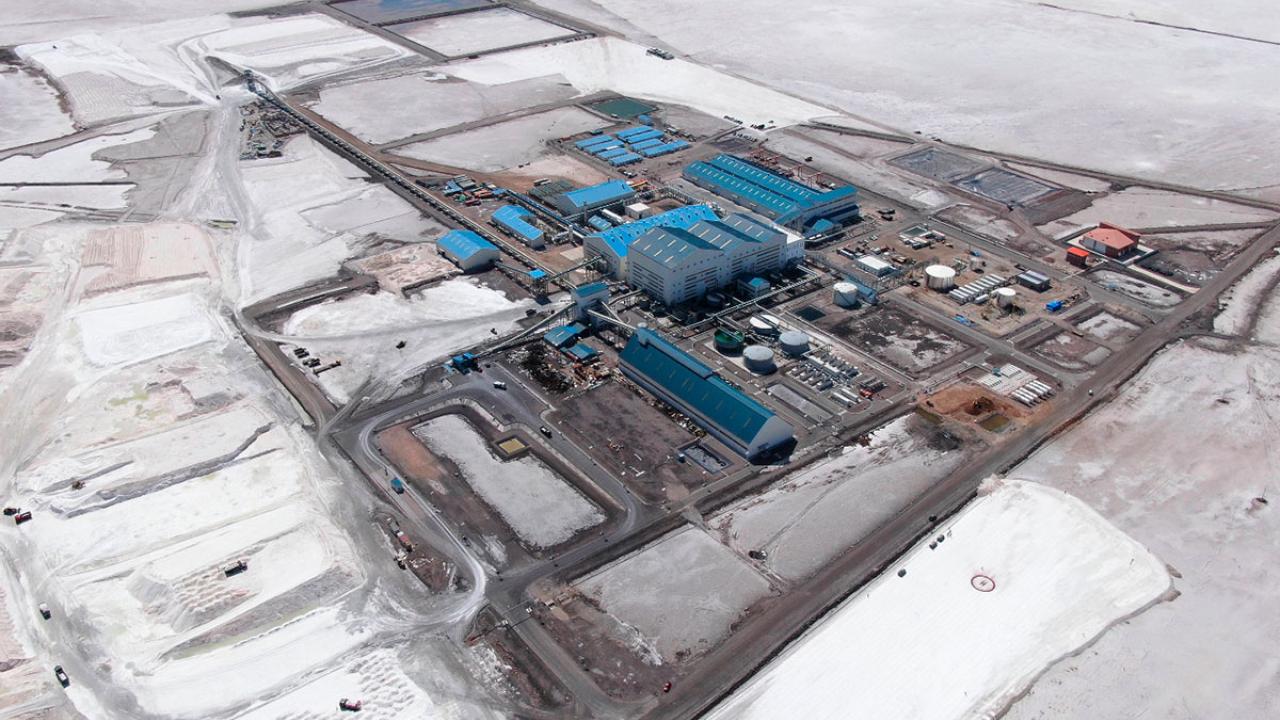
The Chinese market is the main buyer of lithium from the Altiplano country.
Bolivia's lithium carbonate (Li2CO3) exports fell in the first half of the year, with only 50.6 tons of the soft metal sold for US$520,317, of which 99% was sent to the Chinese market.
According to data from the National Institute of Statistics (INE), extracted by the local newspaper La Razón , Bolivia sold lithium carbonate in January, February, May and June, with the last month being when 99.7% of the total volume of lithium carbonate and 99.4% of the value of sales was exported.
During the first half of 2024, Yacimientos de Litio Bolivianos (YLB) sold lithium carbonate to four markets: the Netherlands, India, South Korea and China. The first three countries only demanded minimum quantities ranging from 8.5 to 104 kilos of Li2CO3 and paid between US$ 499 and US$ 1,443.
LITHIUM
While the Chinese market purchased and paid for almost all of what was sold in the first half of the year.
The average price per ton of Li2CO3 that Bolivia sold to the foreign market during the first half of the year was approximately US$9,731.
In May, La Razón reported that lithium carbonate prices for batteries ranged between US$15,193.37 and US$15,676.80 with an average cost of US$15,435.08 per ton.
Prices have plummeted from a record high of more than $80,000 per metric ton in 2022 to less than $14,000 in early 2024.
Regarding exports made until June of last year, Bolivia sold a total of 202.1 tons of the soft metal to foreign markets for an amount of US$ 6.6 million, which represents a drop of 75% in volume and 92% in value compared to the same period in 2024.
EXPORTS
Meanwhile, in the first half of 2022, sales reached a record with 433.5 tons and an export value of US$ 23.5 million. While between January and June 2021, 680.9 tons were sold and revenues of 5.3 million were obtained, according to INE data.
Between 2019 and 2020, Bolivia did not export any lithium carbonate. As of March 2020, the country was closed due to the arrival of COVID-19.
In the first half of 2018, the Altiplano country exported 30.2 tons for US$ 0.56 million, a figure almost similar to what was traded during the first six months of 2024.
Meanwhile, as of June 2017, Bolivia only sold a total of 10.1 tons and earned US$ 0.11 million, one of the lowest sales since the sale of the soft metal began.
SALES
Bolivia entered the era of lithium carbonate exports in the second half of 2016. That year, it shipped a total of 19.3 tons of the world's lightest metal to the Chinese market and earned revenues totaling US$ 0.16 million.
According to government authorities, Bolivia currently has no large-scale Li2CO3 sales contracts and continues with “ spot sales” to intermediaries abroad.
To find out why only 50.6 tons of lithium carbonate were sold, which represented an income of US$ 0.52 million for the country, La Razón sent a questionnaire to the president of the state-owned YLB, Karla Calderón; however, by the time the article was closed, there was no response to the questions.
PRODUCTION
Among YLB's measures to improve the production and marketing of Li2CO3 is the start of operations of the industrial plant with a capacity of 15,000 tons per year, which took place in December of last year.
However, due to problems in 18 evaporation pools, through which the raw material is obtained, the quantity necessary to reach the factory's capacity was not reached.
To avoid further delays in the industrialization of the resources of the country's salt flats, mainly Uyuni in Potosí, YLB plans to sign, by September, agreements with Chinese companies, the CATL consortium, BRUMP & CMOC (CBC) and CITIC GUOAN for the location of plants with Direct Lithium Extraction (DLE) technology that accelerates the production of Li2CO3.
These agreements are expected to result in an investment of up to US$700 million, which will be used to build plants for the exploitation of lithium and other resources found in the salt flats of Bolivian territory.









